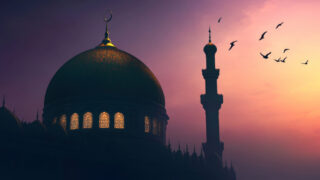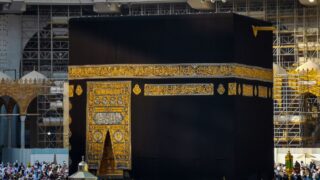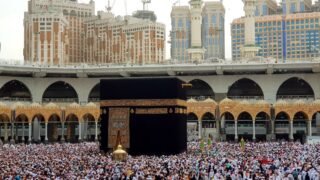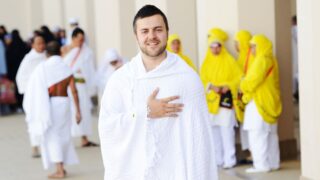- Standing upon the Mount of `Arafah on the Eighth Day for a time out of fear that the moon was wrongly sighted.
- The lighting of many candles on the night of `Arafah at Mina.
- Making Du`aa’ on the night of `Arafah with ten phrases – saying them a thousand times: (Glory be to Him Whose Throne is above the sky…)
- Going direct from Makkah to `Arafah on the eight day.
- Traveling to `Arafah from Mina at night.
- Lighting fires and candles upon the Mount of `Arafah on the night of `Arafah.
- Bathing for the day of `Arafah.
- Saying when nearing `Arafah and upon seeing the Mount of Mercy (Jabal ur-Rahmah): Subhanallah walhamdulillah …
- Saying Tahleel 100 times upon `Arafah, then reading Surat ul-Ikhlas, then sending blessings upon the Prophet 100 times and then saying “and upon us”.
- Remaining silent upon `Arafah and leaving Du`aa’.
- Exerting huge effort to climb upon the Mount of Mercy (Jabal ur-Rahmah) and exposing oneself to dangers while doing so.
- Entering the Dome upon the Mount of Mercy which they call “The Dome of Adam” and praying in it, and making Tawaf of it.
- Believing that Allah, Almighty, descends in the night of `Arafah upon the Dark Green Mountain and shakes hands with the riders and embraces those who are walking.
- The imams saying to the people of Makkah after finishing the prayer in `Arafah: “Complete your prayers for we are travelers.”
- Praying Nafl prayers between Zuhr and `Asr in `Arafah.
- Specifying a certain Du`aa’ or Dhikr for `Arafah, like the Du`aa’ of al-Khidr (peace be upon him) which is mentioned in “Ihya `Uloom ud-Deen” and begins “O Him Who is not diverted from something by another…” and other Du`aa’s – some of them reaching five written pages.
- Leaving `Arafah before sunset.
- What has become common upon the tongues of the people that the standing in `Arafah on Friday is equivalent to 72 pilgrimages.
- Gathering on the evening of `Arafah in congregational mosques or in places outside towns and cities – making Du`aa’ and Dhikr and raising their voices very much, in addition to reciting sermons and poetry, in order to imitate the people in `Arafah.
Common Mistakes made while Standing on `Arafah
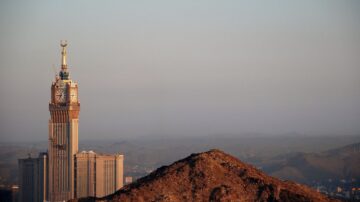
Did you like this content?
All articles published not necessarily the official points of view held by islamonline
Recommended

The Prophet’s Life in Brief

The prophetic approach to strengthening self-confidence

The Purpose of Life in Light of the Qur’an

A Miraculous Aspect of the Qur’an: How the Qur’an Transforms Lives

The Rights of Non-Muslims in Society: A Reading of Al-Qaradawi Thought

“A Journey to Islam: Finding Balance and Purpose”

Close Relation Between Faith and Hope

Revelation: Proof & Guidance

Prophet Muhammad: The Best Maker of Men

God’s Final Revelation: The Story of the Quran
Top Reading

